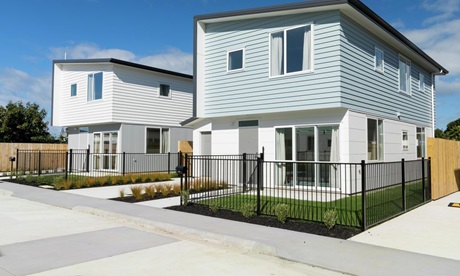An independent review into Kāinga Ora raises several concerns, says Catholic community housing provider Monte Cecilia.
The review – which former Prime Minister Sir Bill English led – found the state housing agency has not been responsibly managing the billions of dollars it is allocated.
It’s a very strong critique of Kāinga Ora, says Monte Cecelia chief executive Vicki Sykes.
She’s concerned that though the Government has had the report since March, its response is light on detail – leaving many unanswered questions.
The report questions Kāinga Ora’s financial competence and highlights a $700 million annual deficit.
Why housing’s in a mess
“We don’t have cross-party support for housing and we don’t have long-term generational planning for housing,” Sykes says.
“We get a flip-flop every time there is a change in government and it’s really not helpful, especially when there are significant pauses in policy and spending.”
Right now, Kāinga Ora is working on a plan which must be completed by the end of the year.
Meanwhile Sykes says waiting for it is having a “significant effect” on community housing and commercial property development sectors.
Providers can’t plan easily and it limits what they can do without funding security, she says.
“We can provide housing – physical infrastructure and tenancy management – at least as efficiently or more than the government” she points out.
But without cross-party commitment to 20-30 year contract funds in order to make multimillion-dollar projects financially viable, it’s difficult for the sector to commit to them.
Transitional housing on skids
Transitional housing is a critical part of the housing ecosystem, Sykes says.
It’s part of the service Monte Cecilia offers.
Effective wrap-around services so tenants can move to stable long-term housing are essential.
Yet the Kāinga Ora report indicates a question mark over the continuation of wrap-around services.
Sykes says Monte Cecilia, like many housing providers, is ready to build, develop or manage more property and take on more tenants.
“But without funding support for building and operational subsidies [or clear messaging from the Government] our hands are tied…
“The Government postponed their decision on that till perhaps 12 to 18 months.”
A lot of traction will be lost, people with skills will go elsewhere, contracts for other work will be undertaken. Local and job-specific knowledge will disappear, she predicts.
Mixed messages
Mixed messages between Kāinga Ora and the Ministry of Housing and Urban Development didn’t help Kāinga Ora, Sykes thinks.
They had differing views on ‘fiscal responsibility’ and ‘a reasonable return on investment’ – and whether or not Kāinga Ora should break even.
“If our society wants everyone housed adequately – which costs money and investment – we need to realise this sort of enterprise can’t break even,” Sykes says.
Post-war Government big spending projects – including housing – offer another model. They stimulated the economy and provided full employment – plus housing, she suggests.
The Government needs to choose between breaking even and fiscal responsibility – how they reconcile those remains to be seen, Sykes says.
Source
